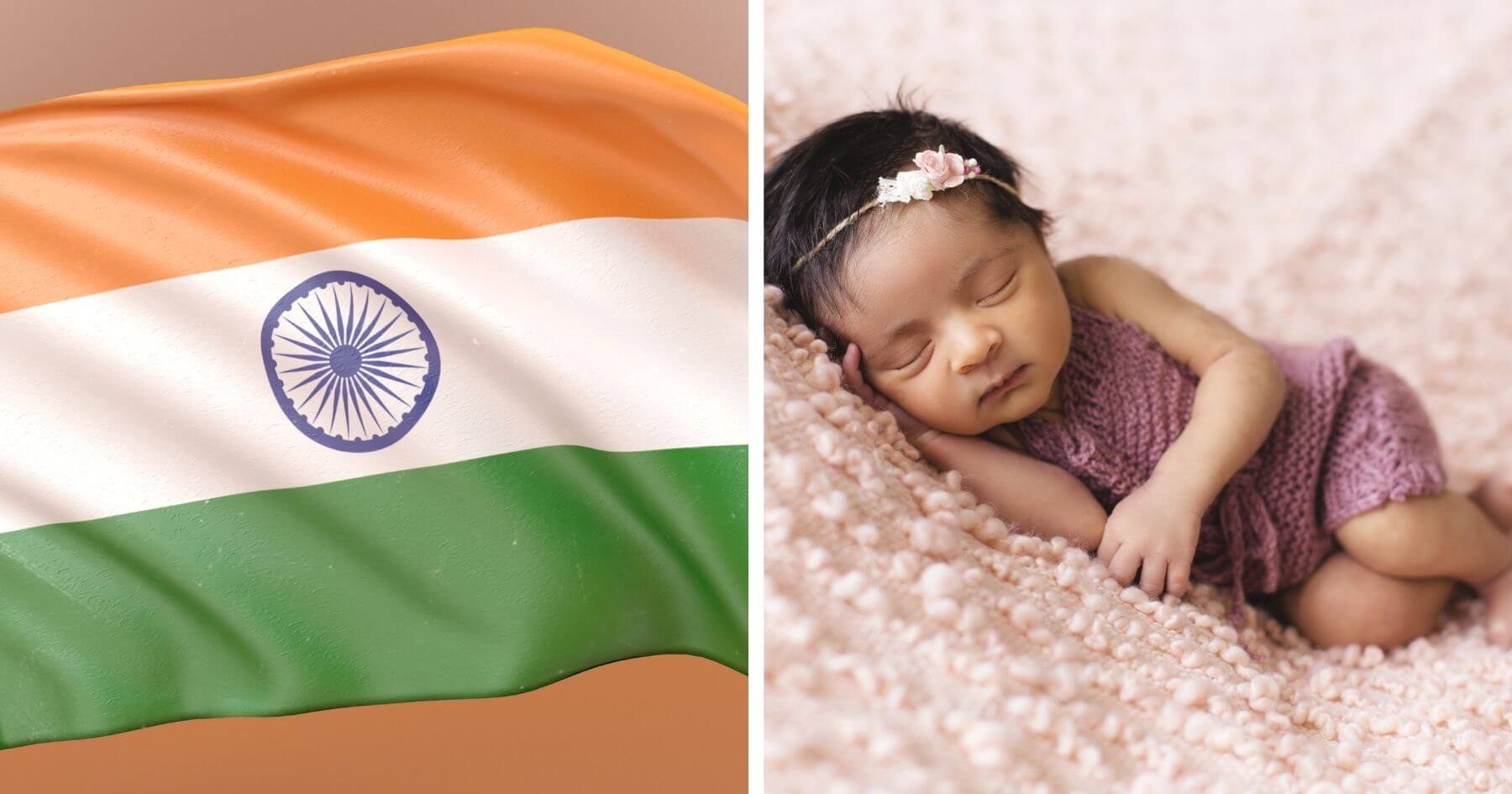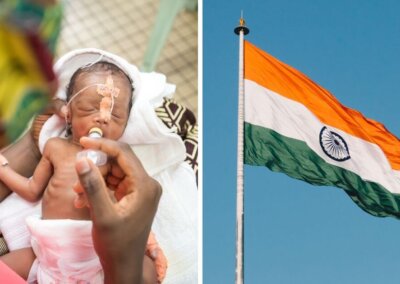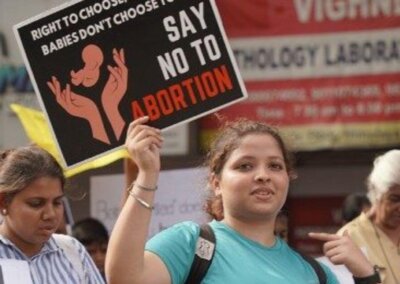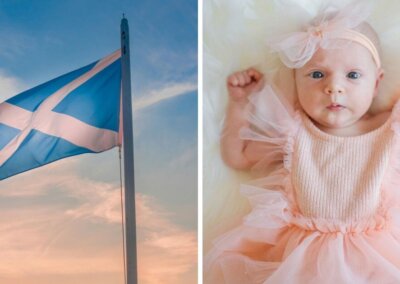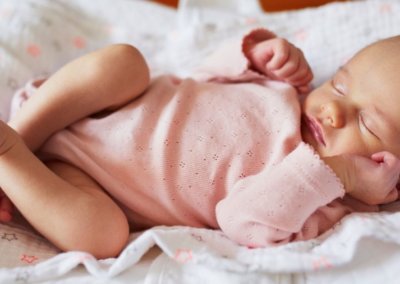A paper published last month by a leading medical journal estimated that 13.5 million or more baby girls were aborted in sex-selective abortions in India between 1987 and 2016.
While India outlawed sex-selective abortion in 1994, it has remained a common practice and it is responsible for approximately fifty per cent of the world’s “missing female births”.
Researchers also admitted that they may have underestimated the “true extent” of missing female births by applying the conservative natural ratio of 950 girls per 1,000 boys. When they tested a ratio of 975 girls per 1000 boys, they calculated over 22 million missing girls at birth.
A “daughter averse” culture
India is thought to have 63 million fewer women since sex-determination tests took off in the 1970s and research suggests India will have an estimated 6.8 million fewer female births by 2030 because of the popularity of sex-selective abortions.
Potential explanations for this include cultural attitudes that prioritise boys’ education, due to the perception that they are the main breadwinners, and the (outlawed) practice of dowries for girls, which in turn brand women as socio-economic burdens.
The impact of wealth
This latest study found that sex-selective abortions most often impact girls in families who already have daughters. Families who already had one or two daughters were very unlikely to have a third, with the ratio of boys to girls born to families with two daughters at 788 to 1,000 in 2016.
The wealthiest families were also often the most likely to undergo sex-selective abortions. The paper concluded that “missing female births were more common in the richest wealth quintile and among women with higher literacy”.
The selective abortion of girls contributes “to an excess of men who would like to find a partner but are unable to, and increasing violence against women”.
They also suggest that “evidence-based strategies” such as inheritance laws that do not discriminate against women, and an emphasis on effectively implementing existing laws of policies, are urgently needed. “Without a reduction in sex-selective abortion, the demographic distortion might have repercussions for decades”.
Sex-selective abortion: a global issue
Sex-selective abortion is a well-documented issue around the world, resulting in highly skewed sex ratios. Since amending its abortion law in 1998, sex-selective abortions have become a major issue in Canada.
An article in the Canadian Medical Association Journal describes how “[e]asy access to abortion and advances in prenatal sex determination have combined to make Canada a haven for parents who would terminate female fetuses in favour of having sons”.
Similarly, evidence of sex-selective abortions has been found in the Australian territory of Victoria, which introduced abortion on request in 2008.
China’s “One Child Policy”, which was officially eased in 2015, permitted coerced sterilisation and abortion. Traditional values that favoured male children led to the mass abandonment or infanticide of female babies. Hundreds of millions of forced abortions were performed, sometimes at over eight months gestation. China consequently boasts the world’s most uneven sex ratio at birth of around 114 males born for every 100 females.
Sex-selective abortion in the UK
A 2014 investigation by The Independent found that “in two-child families of some first-generation immigrants, having elder daughters significantly increases the chances of the second child being male – an imbalance in the sex ratio that should not occur naturally”. It went on to suggest that this could be due to sex-selective abortions.
A BBC investigation published in September 2018 revealed evidence that the new NIPT (non-invasive pre-natal testing) provision was being used on a widespread basis to determine the sex of babies, with women discussing that they were under intense pressure to undergo sex-selective abortions.
There is also a body of first-hand testimonies from UK-resident women who say that they have come under intense pressure from family members to have sex-selective abortions and have gone on to obtain these abortions in the UK.
A report from the Nuffield Council on Bioethics, a government advisory body, found a number of websites offering baby gender tests for around £170. In that report, the Council warned that the increasingly widespread use of the tests in the UK could lead to the country becoming a haven for sex-selective abortions.
An investigation by the Telegraph revealed that doctors were agreeing to provide sex-selective abortions ‘no questions asked’.
Independent polling undertaken by Savanta ComRes shows that 89% of the general population and 91% of women agree that gender-selective abortion should be explicitly banned by the law.
Jeena International, a charity supporting women from ethnic minority communities in the UK, said some women were forced into abortions because they became pregnant with a girl for a second or third time. The charity’s founder, Rani Bilkhu, said, “They don’t want to be homeless, they don’t want their marriage to fail – all because they couldn’t give birth to a boy”.
Right To Life UK’s spokesperson, Catherine Robinson, said: “It is a tragedy that in such a self-professed age of progress, so many countries refuse to outlaw abortion based on the sex of the child in the womb. We must take action to foster a global climate in which all babies are valued for their inherent dignity as living human beings, and not one in which they are unfairly treated as a burden”.


